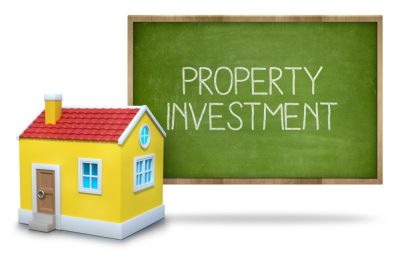There are lots of strong views out there when it comes to investing in real estate. But just because something is popular doesn’t mean it’s true. Today, we will look at some common myths surrounding property investment.
If you want to learn how to invest in real estate to the best of your ability, then read on to discover how to distinguish between facts and myths when it comes to investing in real estate.
Myth 1: “Property flipping works anywhere”
“Flipping” means buying an old house (or flat) that needs some fixing up and selling it at a profit. To be successful at flipping, you must know what people look for when they buy houses and flats. You then have to fix things up in ways that appeal to these people.
Property flipping is a very popular strategy because for a lot of people it is “a quick profit”. However, this isn’t an investing strategy that can be carried out everywhere and it isn’t recommended to those looking to invest in the property market.
The thing about real estate flipping is that there are only a limited number of homes that fit into the particular category of property flipping in any one city. In the specific instance of an older city like Edinburgh, the townhouse buildings that are most suitable for flip buying are the ones that were flipped 10 years ago and the ones that weren’t done a decade ago were for a reason – a lot of properties aren’t suitable for flipping.
For example, many people are looking for en suite flats to transform into holiday lets. What they don’t understand is that there are no en suites in older cities, as these houses were built hundreds of years ago. These flats are also often on the smaller side, making installing one a challenge.
Myth 2: “Property renovations always increase property values”
If you’re planning to flip a house, then renovating doesn’t automatically mean that you’ll get a better price for your home. Some renovation projects may actually end up costing more than their worth, leaving you in the red when it comes to your investments.
If you’re planning to renovate your house, you may be tempted to spend lots of time and money making it look exactly the way you want it to. However, if you plan to sell your house, and your renovation tastes don’t match that of your potential buyers, then you may end up losing out on its actual market value because of these costly renovations.
No two people have exactly the same tastes, and because most potential home owners aren’t looking for homes that are 100 percent perfect, they’re likely to be open to making changes to their properties.
For some of the best types of renovation projects to increase the value of your house, consider improvements to its overall eco-friendliness. Double glazing, sealing off any drafty spots and upgrading to low-emissions windows may help your property appeal to potential buyers.
If you’re looking for ways to improve your rental properties’ value, one option would be to fix any structural issues like rising water, structural cracking in walls, or a leaking ceiling. However, if you decide to undertake these improvements yourself, rather than leave them to the buyer of the property, you might lose out on some profit.
Laying down some new flooring, painting walls, or installing new door knobs can be inexpensive ways to improve the look of your home. These improvements might not increase its overall marketability exponentially, but they can give prospective buyers an idea of what their investment could potentially look like once completed.
Myth 3: “To start investing in real estate, you’ll need to have a lot of money”
Many people think that investing requires having a lot of money, but they’re wrong. You don’t need to be part of the one percent to invest in real estate.
You don’t need a big initial deposit to start investing in real estate. Many options exist for people who want to invest in properties but lack the cash upfront. For example, you could partner with someone else or team up with several investors.
You may want to consider borrowing from a friend or relative for a downpayment on a house. Be sure to go through legal channels and ensure that everything is legitimate before taking out a mortgage. Also, be careful not to put too much pressure on yourself to repay the debt. Your loved ones are more important than money, after all.
If you’re serious enough about investing in real estate to start building up an asset portfolio for retirement, then get creative! Try starting a side business, setting up a direct debit into a savings account, or renting out a spare room in a house.
Myth 4: “To invest successfully in property, you’ll probably have to devote quite a bit of additional time to it”
Finding the right house, buying one, renovating it and renting it out can be a lot of work. However, there are some things you can do to help speed up the process. Working with an experienced real estate agent or investing in a property management company can both help you avoid these pitfalls.
You won’t earn 100 percent of the profit you make doing it this way, but working alongside experienced industry professionals can help eliminate a lot of headaches along the journey.
Property investment managers can advise you on ways to raise cash for your investments, find you the right properties, negotiate better prices, offer advice on mortgages and act as the property manager for rental flats and homes.













